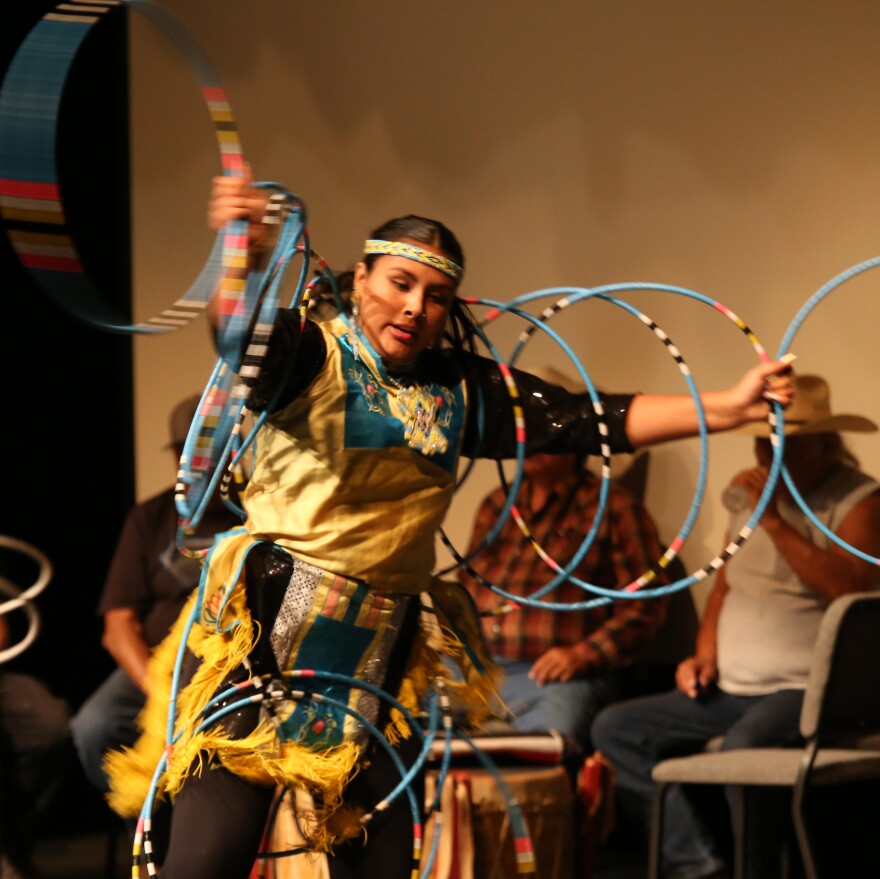The annual Native American Education Conference will take place at Central Wyoming College in Riverton from August 8-10. The conference helps teachers increase their fluency with Indigenous culture and helps the state achieve the goals of the Indian Education for All Act, which was passed in 2017 and aims to educate all students in Wyoming about the Native American tribes of the region.
This year’s theme is “The Whole Child – Addressing Mental, Emotional, and Physical Needs of Indigenous Students.” Rob Black, the conference’s lead planner, said this focus is a response to some of the challenges Native students faced as a result of the COVID-19 pandemic.
“The reservation schools were locked down longer than the rest of the schools in Wyoming and there was some learning loss – students were isolated from their teachers, isolated from their friends, they lost family members,” he said.
The seeds for the conference were planted in 2009, when a team from the Wyoming Department of Education met with the then-Northern Arapaho and Eastern Shoshone Joint Tribal Business Council to propose a new initiative to bring together tribal and state governments, reservation areas, schools and community partners to support Native students in Wyoming.
The Native American Education Conference grew out of that initiative, with the goal of helping to meet the educational needs of Native students while also maintaining their culture and heritage.
Black, who is also the Native American liaison and social studies consultant for the Wyoming Department of Education, said the event also helps to educate Wyoming teachers working on or near the reservation.
“The conference is aimed in part to help those teachers feel more comfortable, to understand, be more empathetic, more sympathetic to some of the issues on the reservation,” he said. “But in the long run, it's to help the students, help the students succeed.”
Over the years, the conference has grown in length and breadth. The first conference took place at the Wyoming Indian High School in 2010 and lasted two days. This year, the three-day conference will include two keynote speeches and 57 workshop sessions, almost double the amount that were offered at the inaugural conference.
Three major strands weave together throughout the event’s programming: teaching about Native history and culture, preparing students for success in and after school, and the conference’s theme of holistic health and well-being.
“We have people from the FAA (Federal Aviation Administration) coming in to talk about careers in aviation, [workshops on] how students are learning robotics and how Native history and culture are woven into brand new computer coding lesson plans that are being developed on the reservation for grade school students,” Black said.
The event will also include workshops exploring the healing effects of hoop dancing, how Native languages are woven into regular school activities like school announcements, and a screening of the classic Disney film “Bambi” in Arapaho.
New this year, light exercise breaks will be offered on the lawn throughout the conference to help keep the blood flowing for conference attendees. Black said the addition is in line with the conference’s emphasis on mental, physical, and emotional health for students.
“Students also need exercise, and there's plenty of research that links movement with better brain activity and academic success,” he said.
Black said that people of all ages and all walks of life are welcome to attend the conference.
“Non-educators can benefit tremendously from this conference – there are so many sessions that are not focused on pedagogy and how to do this in the classroom. It gives you a broader picture of the reservation and our state,” he said.
Admission to the conference is $35 and those under 22 can attend for free. Lunch and frybread from a local chef will be provided throughout the three days of programming.








